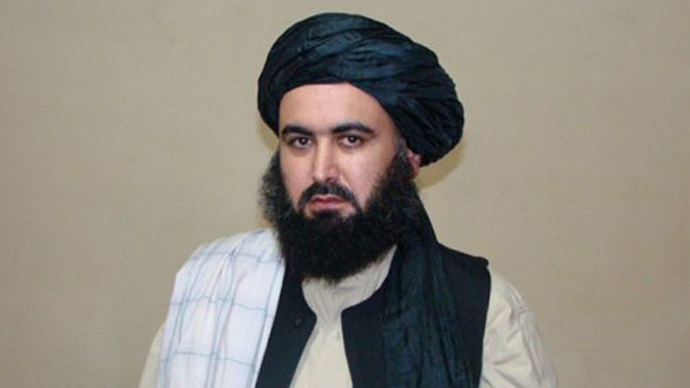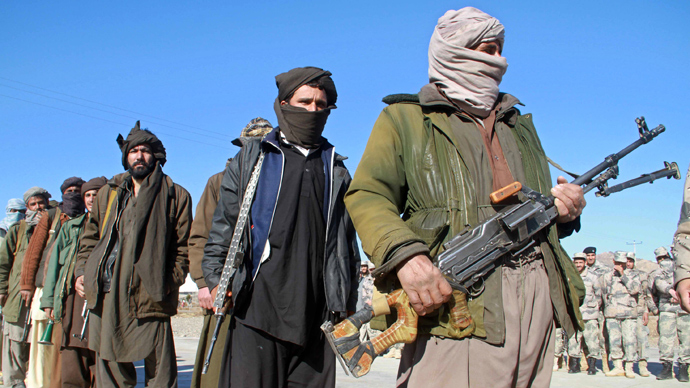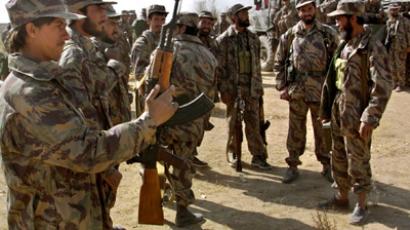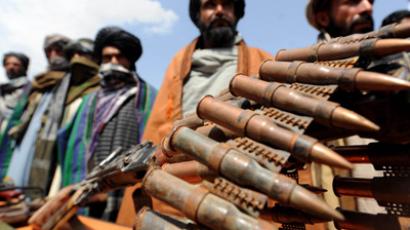‘War weary’ Taliban may form political party
The Afghan Taliban are considering a political solution to the decade long conflict, a senior Taliban leader has said, amid speculation that the Taliban may be becoming war weary.
“We must launch a political movement to achieve the goals for which we have made so many sacrifices. The Taliban leaders whose names have been removed from the UN black list will play an important role in the political process,” Mullah Agha Jan Mutasim, a close confident of the militant groups elusive leader Mullah Omar and the former head of the Taliban Political Commission, told the Pakistani newspaper the Express Tribune.
However, he added that the warring faction was a “vital part of the Taliban”.
The Taliban have said numerous times that they will not talk to the administration of Afghan president Hamid Karzai, who they’ve said was a US puppet. But political analysts believe that the Taliban are tired of waging war.
“The Taliban are tired of war and it will be a step in the right direction if they launch a political movement,” Rashid Waziri, an advisor at the Regional Studies Center of Afghanistan, told the Express Tribune on Sunday.
Pakistan, which has some influence over the Afghan Taliban, recently sent Maulana Rehman, an influential political-religious leader, to meet Taliban representatives in Qatar to help broker peace talks between the militants and the Karzai administration, although officially both sides denied the meeting.

The unofficial talks in Doha, mark the latest efforts at a negotiated settlement with the Taliban.
As 2014 approaches – the date when most NATO troops will leave Afghanistan – the US is pushing for an Afghan led solution and for peace talks between the Afghan government and the insurgency.
They also want to get Pakistan on board with any eventual settlement. Pakistan has long been a negative influence on the situation, enabling Taliban groups to operate from its territory while at the same time refusing to support negotiations.
Tony Gosling, an investigative journalist based in Bristol in the UK, believes the Taliban are serious about a political solution and that they have more influence in the country than the Karzai government.
“The Taliban have more influence than Karzai does. If elections in Afghanistan were free and fair, the Taliban might well do very well,” he told RT.
He also said that the west is trying to bring them into the political arena, as it now has little other option.
“We know that this has been going on behind the scenes since the beginning of the occupation. As the cost of the war gets higher and higher and cuts to the defense budget begin to bite, other options are being considered by the occupying powers,” said Gosling.
American military commanders concluded some time ago that the Afghan war could only end in a negotiated settlement with the Taliban and not an outright military victory. However talks between the Taliban and the US in 2012 ended in failure.
The talks stalled because the US administration could not complete a proposed prisoner swap for five Taliban members in Guantanamo to be exchanged for the one US soldier in captivity in Afghanistan, Sergeant Bowe Bergdhal.
The swap, which was scuppered by opposition from both parties in Congress, has made more serious talks difficult to envisage.

The Taliban are also internally divided particularly between their political wing and their military commanders, who were critical of the existence of talks.
They are also unwilling to meet Washington’s demands to sever ties with Al Qaida, renounce violence and accept the commitments to political and human rights in Afghanistan’s Constitution.
But despite all these setbacks the Qataris remain willing to host the talks and one of the Taliban negotiators who is still in Doha has said that talks could restart as soon as the prisoner swap takes place and the insurgents are allowed to open an office in Doha.
If this happens “and practical steps are taken by the United States of America, talks will resume. There is no other obstruction,” Sohail Shaheen, a Taliban negotiator, told Japan’s NHK World TV last month.
Gosling believes that when NATO troops have gone and negotiations are underway between the Taliban and the Afghan government, there is a chance of peace in the country, although there may be problems in the short term.
“What’s happening in Pakistan and Iraq with frequent sectarian bombings, there is a likelihood of this happening in Afghanistan. But ultimately, if Afghanistan were left alone, it may turn into a more peaceful regime,” he said.














